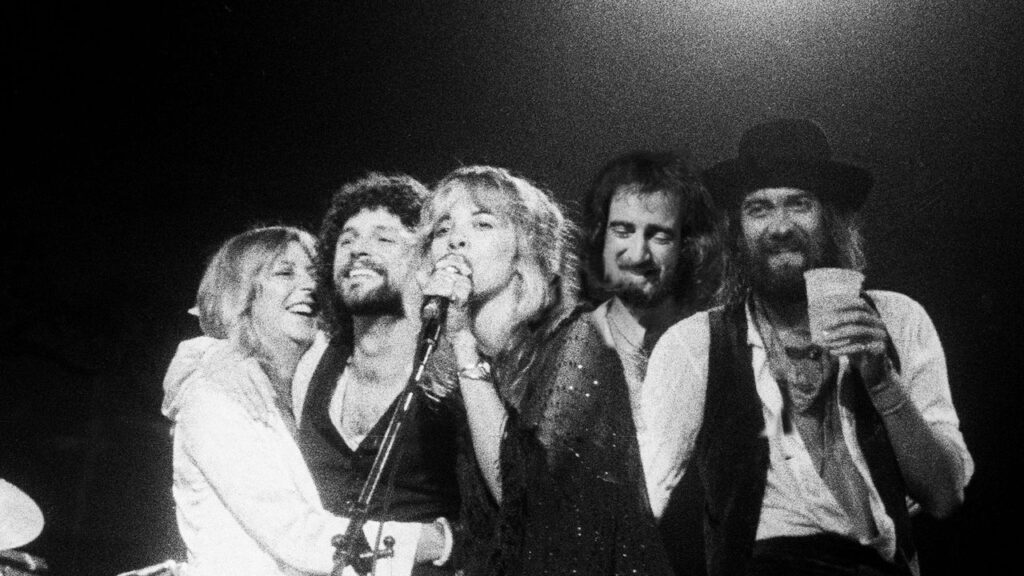Do you think that the drama and mystique surrounding Rumours could happen in today’s media landscape?
That’s a really good question, because everything is discovered and covered in real time as it happens. Can you imagine if there was a relationship within a band or a group, and it broke up in the middle of the recording sessions? What the coverage would look like the next day? And how that would take over how people looked at that record? I think of the White Stripes and the “Are they brother or sister, or are they married?” thing that they were able to pull off for a little while, which is impressive in the 21st century. Kids listen to songs that they like, but if there’s a full project that they commit to—if it’s a Taylor album, if it’s a Beyoncé album, if it’s a Sabrina album—it’s so much about the backstory and the narrative. That is what an album experience is now. And Rumours is the blueprint for that. That’s become the dominant way that an album exists and is experienced now.
Even relating it back to right now, the new Lily Allen album…
Right. Exactly. “Here it is. Here’s the whole thing.” I love that album, by the way. But yes, that’s a thing that people are listening to because it’s taking you through that situation. And that’s a big thing that Rumours created. Not intentionally, not strategically, but they set the precedent for that.
You’ve written a lot of books about music. What was different about working on this one?
When I did the “Hallelujah” book, I was really interested in hearing from people talking about the song in their own lives. What I found was that anytime I mentioned the song, somebody would say, “We played it at my uncle’s funeral.” “It was the first dance at our wedding.” “My sister played it when their baby was born.” It just seemed to have this presence that I found really inspiring. Because when you do this for a living, you can get really cynical about music. But then you hear from people and realize, “Oh, wow. Okay, this stuff is still really important to people.” So whatever the next thing I did was, I wanted to lean into that. And obviously, as we talked about earlier, realizing that there’s this unprecedented, never-ending popularity for Rumours—that seemed like an opportunity. So I think that’s what was different about it: really trying to center those voices of listeners.

